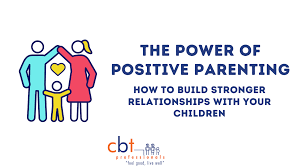The Power of Resilient Parenting: Nurturing Children’s Emotional Strength
Introduction:
Parenting is a journey filled with joys, challenges, and the responsibility of raising emotionally strong and resilient children. Resilient parenting equips parents with the tools and strategies to support their children’s emotional well-being, helping them navigate life’s ups and downs with confidence and adaptability. In this article, we will explore the power of resilient parenting, delve into the key principles, and provide practical insights for nurturing children’s emotional strength. Discover how resilient parenting can positively impact your child’s development and foster their resilience for a lifetime.
- Understanding Resilient Parenting:
- Defining resilient parenting and its significance in children’s emotional development.
- Recognizing the role of parents as key influencers in fostering resilience.
- Embracing the importance of nurturing children’s emotional strength for their overall well-being.
- Building a Secure and Nurturing Parent-Child Relationship:
- Establishing a strong bond and attachment with your child.
- Creating a safe and supportive environment for emotional expression.
- Practicing active listening and empathy to understand and validate your child’s emotions.
- Encouraging Emotional Regulation and Coping Skills:
- Teaching children healthy ways to identify, express, and regulate their emotions.
- Promoting problem-solving skills and adaptive coping mechanisms.
- Guiding children in managing stress and adversity effectively.
- Fostering a Growth Mindset:
- Cultivating a positive and optimistic outlook on challenges and setbacks.
- Emphasizing the importance of effort, resilience, and learning from mistakes.
- Encouraging a mindset that embraces growth, exploration, and continuous improvement.
- Teaching Problem-Solving and Decision-Making Skills:
- Empowering children to think critically and make independent choices.
- Guiding them through problem-solving processes and decision-making frameworks.
- Balancing guidance and autonomy to foster confidence and self-reliance.
- Promoting Healthy Self-esteem and Self-worth:
- Celebrating your child’s strengths, accomplishments, and unique qualities.
- Encouraging a positive self-image and cultivating a healthy sense of self-worth.
- Supporting your child in developing a realistic and balanced self-perception.
- Resilient Communication and Conflict Resolution:
- Modeling effective communication and conflict resolution skills.
- Teaching children how to express their needs, assert boundaries, and resolve conflicts peacefully.
- Promoting empathy, active listening, and respectful dialogue within the family.
- Cultivating Social Connections and Support Networks:
- Encouraging positive social interactions and fostering healthy relationships.
- Teaching children empathy, compassion, and the value of friendship.
- Helping children develop a support network of trusted individuals.
- Balancing Independence and Support:
- Allowing children appropriate levels of independence and autonomy.
- Providing guidance, guidance, and support when needed.
- Encouraging children to take responsibility for their actions and learn from experiences.
- Self-care and Parental Well-being:
- Prioritizing self-care and maintaining your own emotional well-being.
- Modeling healthy coping strategies and self-care practices.
- Seeking support and resources to navigate parenting challenges.
Conclusion:
Resilient parenting equips parents with the tools and mindset to nurture children’s emotional strength and resilience. By fostering secure relationships, teaching coping skills, promoting growth mindsets, and modeling healthy communication, parents can help their children navigate life’s challenges with confidence and adaptability. Embrace the power of resilient parenting and empower your child to thrive emotionally, building a foundation for their long-term well-being and resilience.


